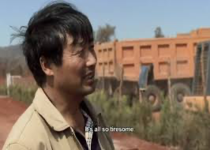Rifleman86
WKR
- Joined
- Nov 26, 2018
- Messages
- 1,268
And that 2550 will come out of the 17,000 nonresident tags already allocated.
Aka more tags for the elites who use Montana as their playground, and less tags for me and you.
https://billingsgazette.com/news/st...cle_c422b588-b478-11ed-af53-b31f2da5c768.html
HB 635 being proposed by Rep. Kassmier. If you’re in his district, please help us fight this one.

Aka more tags for the elites who use Montana as their playground, and less tags for me and you.
https://billingsgazette.com/news/st...cle_c422b588-b478-11ed-af53-b31f2da5c768.html
HB 635 being proposed by Rep. Kassmier. If you’re in his district, please help us fight this one.

